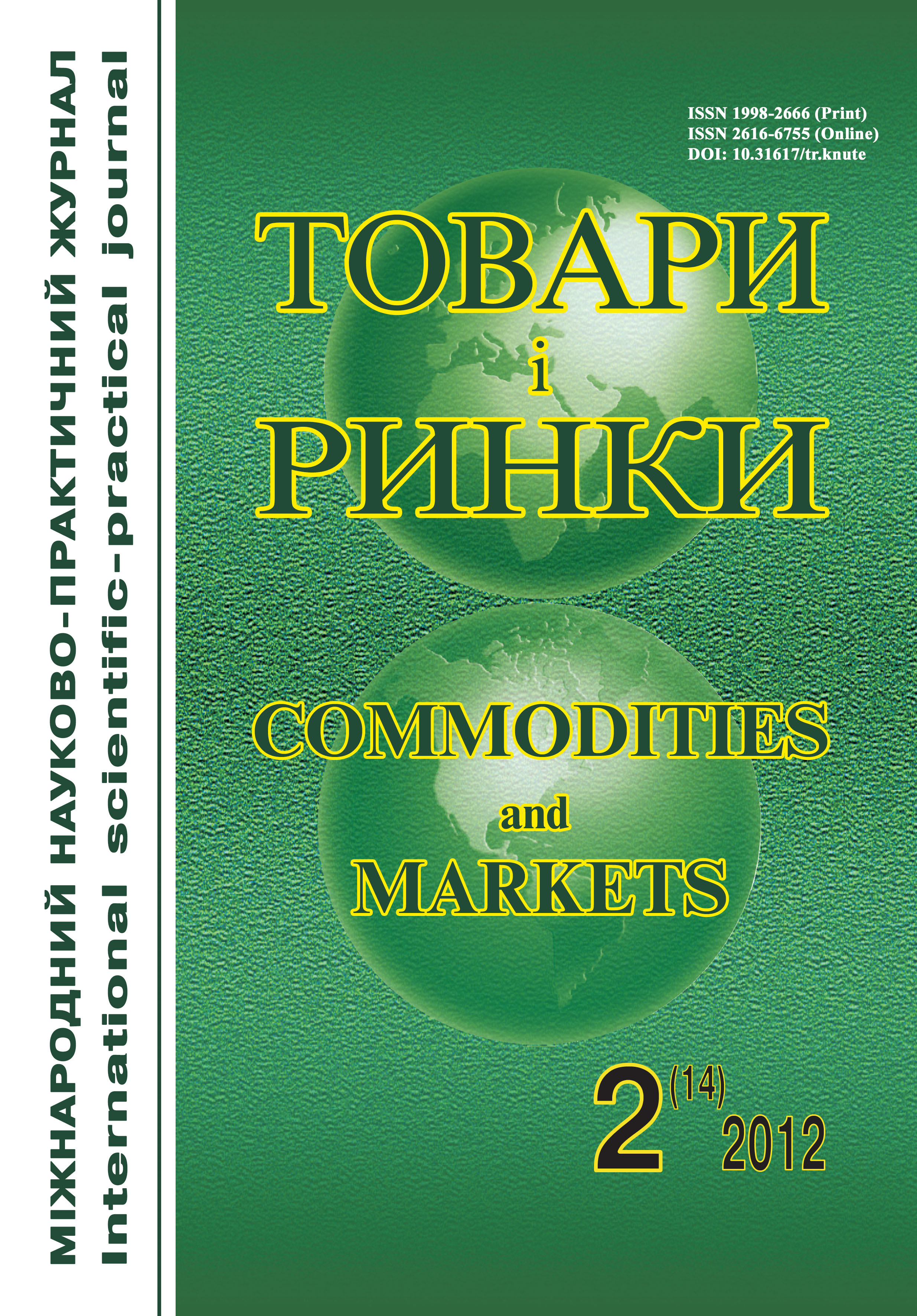Physiological needs in nutrients for people with mental activity
Keywords:
recommended daily intakes, nutrients, people with mental activity, nutrient reference valuesAbstract
The problem of healthy food is the actual issue of the modern nutriciology. Ensuring the nation health depends largely on state and government programs which control the ways of food optimization. The governments of the European countries, USA, Canada carry out the support of the health of population through better nutrition. The efficiency of action of these programs is confirmed by the indexes of average life expectancy. Thus, the average life expectancy of modern Europeans is 78.4 years, British – 80, Ukrainian – 66.5, Russian – 65. The greatest index is for the Japanese – 82 years.
Every country uses norms for people with certain activity level, age, weight, which are based on scientific evidences of international scientific community, as the basis of the guidelines on nutrition for the certain group of people.
The analysis of the recommended intake values of nutrients is made for the people with mental activity, accepted by the World Health Organization (WHO), Ukraine, Russian Federation, Japan and United Kingdom. These values are standards, which allows to rate the adequacy of diet of people, quantitatively measured in the study of food consumption.
The group of people with mental activity, who belong to the first group of physical activity, is chosen for research. According to recommendations of FAO/WHO, the normal protein intake for the male with mental activity is the highest (95.6 g) of all analysed. The normal protein intake for the female in analysed countries is lower on 20–25 %.
The recommended standards of fat intake by WHO and Ukraine are virtually indistinguishable (85 g and 84 g for men, 64 g and 69 g for women accordingly).
The recommended standards carbohydrate intake is 60 % of the total diet in the countries of FAO/WHO, while in Ukraine and Russia it is 75 % and 70 %.
The total ratio of protein : fat : carbohydrates set by Worldwide Health Organization is (%) 18 : 16 : 66. According to the Ukrainian standards this correlation is 13 : 13 : 75, Russian – 14 : 16 : 70.
The smallest standards of vitamin intake are recommended by WHO. In Ukraine, Russia, Japan and the UK these values are bigger. So, daily need of thiamine (В1) is 1.1 – 1.2 gaccording to WHO, while in Ukraine and Russia it is 1.6–1.3 and 1.5–1.5 g. The increased rate recommended of iodine intake is caused by high-risk lesions with radioactive iodine in Ukraine (150 mg), Russia (150 mg) and Japan (140 mg).
The analysis points to the necessity of correction of the adopted norms of physiological needs in Ukraine, taking into consideration positive experience of countries with the higher life expectancy. This will give the possibility to optimize the nutrition of people with mental activity and determine the composition daily diets of people with mental activity.
References
Матеріали розширеного засідання Національної ради з питань охорони здоров’я при Президентові України від 15.01.2010. — С. 41. — Режим доступу : www.rnbo.gov.ua /content/zakon_rnbou.html.
Measuring change in nutritional status. Geneva, World Health Organization, 1983. — С. 100. — Way of access : whqlibdoc.who.int/publications/1983/9241541660.pdf.
Management of severe malnutrition: a manual for physicians and other senior health workers. Geneva, World Health Organization, 1999. — С. 68. — Way of access : whqlibdoc.who.int/hq/1999/a57361.pdf.
Державна служба статистики України, 2012 р. — Режим доступу : www.ukrstat.gov.ua.
Energy and protein requirements // Report of a joint FAO/WHO/UNU expert consultation. — Geneva : World Health Organization, 1985 (WHO
Technical Report Series, N 724). — С. 103. — Way of access : ftp://ftp.fao.org/docrep/fao/007/y5686e/y5686e00.pdf.
Department of health, United Kingdom. Dietary reference values for food energy and nutrients for the United Kingdom. Report of the Panel on Dietary Reference Values of the Committee on Medical Aspects of Food Policy. — London : H.M. Stationery Office, 1991 (Report on Health and Social Subjects, N 41). — С. 93. — Way of access : www.food.gov.uk/multimedia/pdfs/nutguideuk.pdf/.
Про затвердження Норм фізіологічних потреб населення України в основних харчових речовинах та енергії (наказ від 18.11.1999 No 272). — Режим доступу : zakon.rada.gov.ua/laws/show/z0834–99.
Report of a joint FAO/WHO/UNU expert consultation (WHO Techical Report Series 935), 2007. — С. 85. — Way of access : www.who.int/nutrition/publications/nutrientrequirements/en /index.html/.
Нормы физиологических потребностей в энергии и пищевых веществах для различных групп населения Российской Федерации (от
12.2008 МР 2.3.1.2432.08). — Режим доступа : health-diet.ru/article/vitaminy/norm.
Dietary Reference Intakes For Japanese, 2005. — С. 58 — Way of access : www.nih.go.jp/eiken/english/research/pdf/dris2005_eng.pdf.



